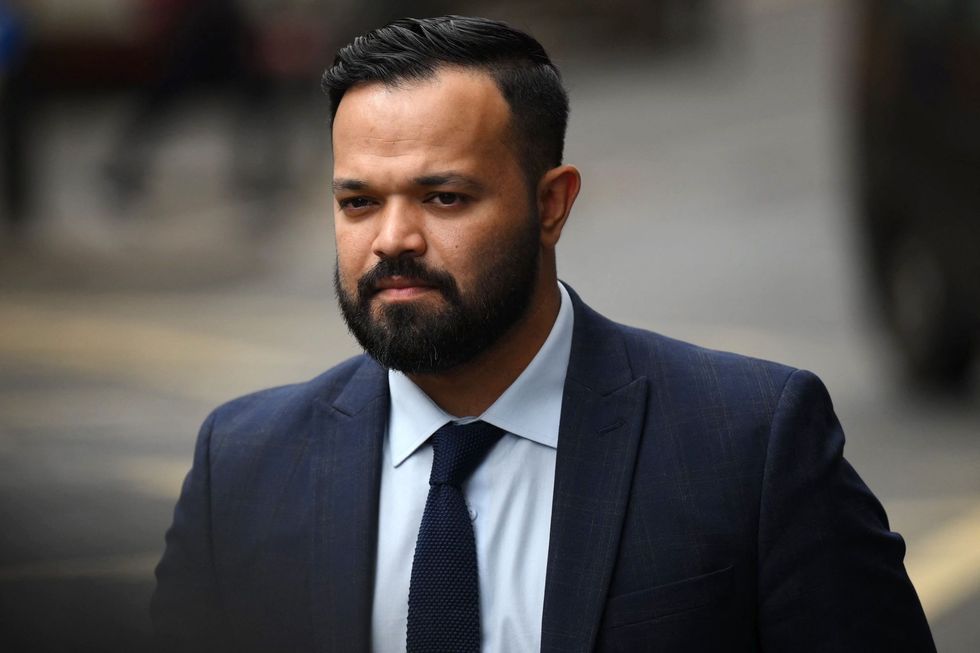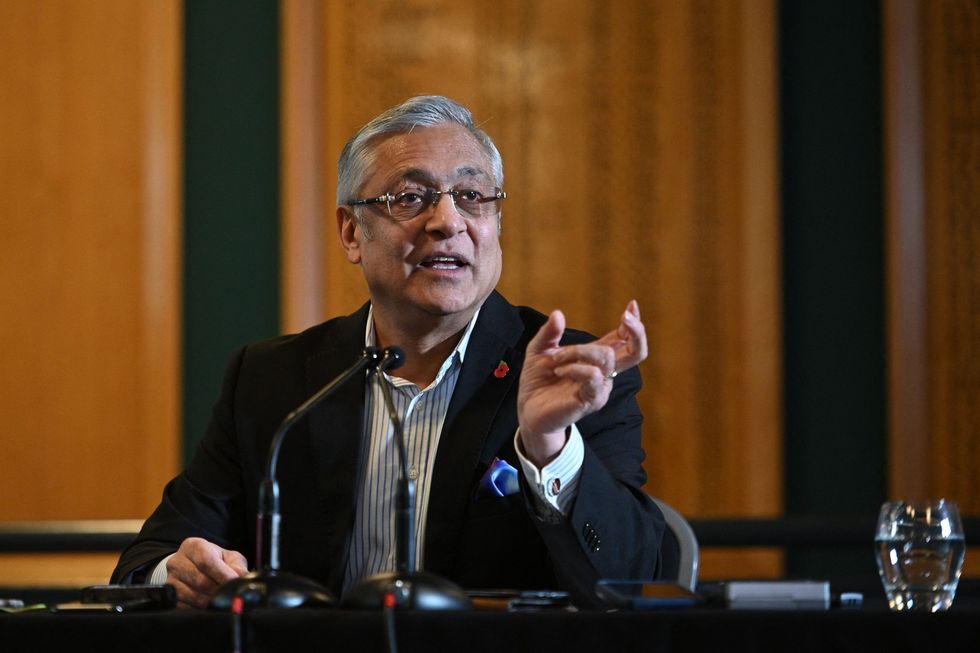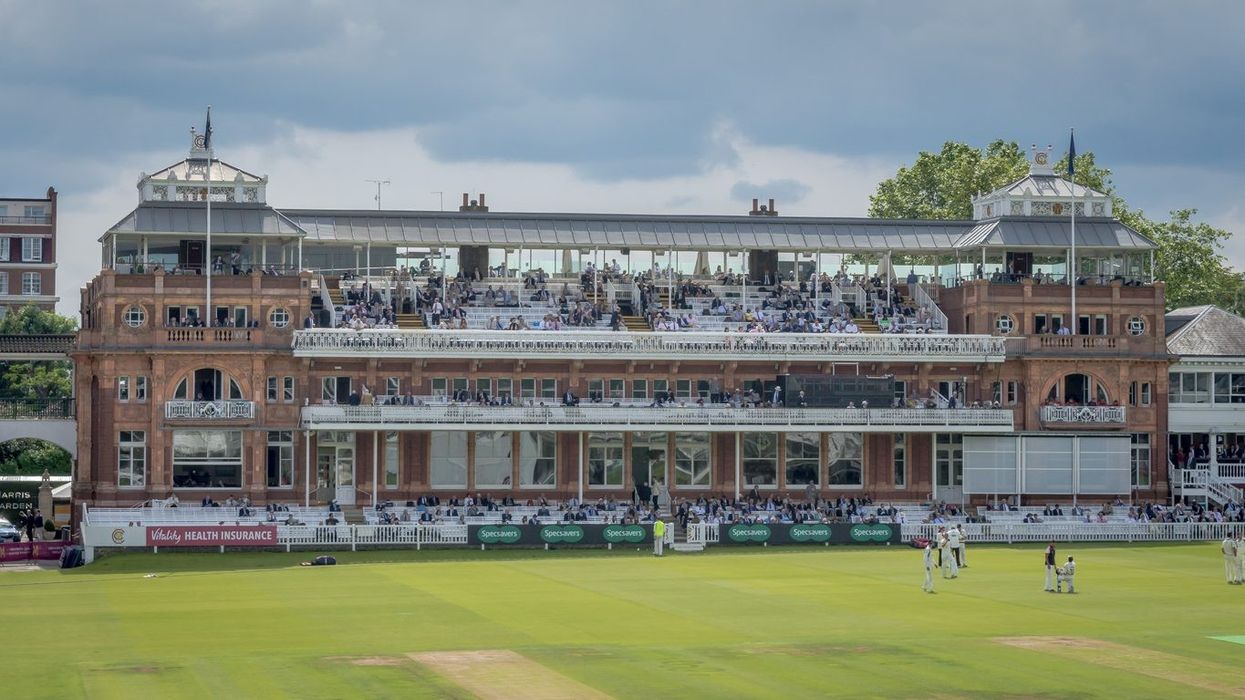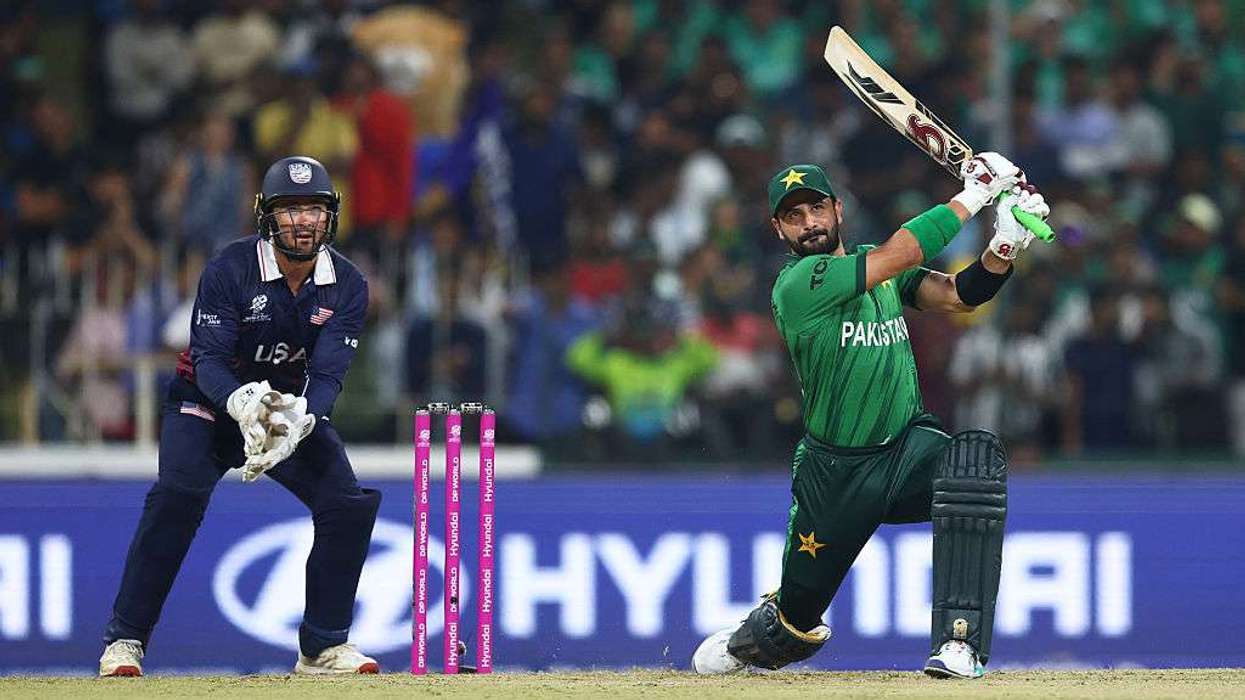CRICKET owes Azeem Rafiq and Lord Kamlesh Patel of Bradford an apology for the way they were treated in exposing and trying to overcome racism in cricket, the chair of an independent inquiry has told Eastern Eye.
After a two-and-a-half-year review of the sport, the Independent Commission for Equity in Cricket (ICEC) concluded that “structural and institutional racism continue to exist across the game”.
The England and Wales Cricket Board (ECB) appointed Cindy Butts, an experienced and respected regulator, to lead the review.
“I'm deeply sorry for the experiences that they've had,” Butts told Eastern Eye when asked about the two men.
“I've seen the way in which they have been treated, some of the comments that I've seen on social media, and I think it [the report] is a vindication.
“It's there in black and white, and I would like to think that not just Azeem and others, but all of those who gave evidence to us, I'd like to think that they see that we heard them.
“We took them seriously, and we really respected their experiences, and we've reflected them unflinchingly within our report.”
Earlier that month, the county club appointed Lord Patel as chair to change the culture at Yorkshire.
With weeks, he ended up sacking 16 staff.
But critics inside and outside the game condemned his root-and-branch shake-up.

“Our very first recommendation is that the ECB apologises on its behalf on behalf of the game that it governs,” Butts continued.
“Racism, sexism and class based discrimination have existed and continue to exist.
“They're indebted to them, I do think the bravery in particular Azeem has shown, in speaking up about his experiences, has led to root and branch look at the problems that exist in cricket, and a commitment to try and change that.
“I think that the game should be indebted to them in terms of exposure, that change will happen.”
Structural issues
The panel’s findings are scathing in its condemnation of racism, gender bias and the elitism overshadowing the sport.
“In reality, however, racism, sexism, elitism and class-based discrimination have a long history within the culture and institutions of English and Welsh cricket,” it concluded.
“Alongside the images of tradition and fairness that many love about cricket sits a history of tensions and social conflicts.
“This is why our report, somewhat unusually, begins with a chapter that sets out the historical context for cricket in England and Wales.
“Engaging with this history is critical as it reveals many unspoken assumptions, inherited from the past, that continue to shape the game, explaining why some have had the opportunities to succeed and thrive with others left behind at the margins.
“Indeed, our evidence shows that elitism alongside deeply rooted and widespread forms of structural and institutional racism, sexism and class-based discrimination continue to exist across the game.”
The findings are backed by those who spoke to Eastern Eye.

“It’s still happening today,” said one source closely connected to the game. “Azeem’s experiences aren’t new, they’ve been happening since cricket began, and they still continue.
“Nothing will change until the culture of denial which exists in our game go away.
“Nothing will change until we have the confidence to report knowing our complaints and experiences will be taken seriously.”
That culture of denial means often the victims will be blamed by the club for causing trouble, said the source.
It is something echoed by Butts.
“They don't report it for two reasons, one, they have a deep mistrust of the complaints process.
“They don't think that if they report it, anything will be done about it, but probably even worse than that they fear victimisation.
“They think that if they do raise their voices and their concerns, that they will be victimised, that it might even be career suicide, and so people are suffering in silence.”
Talent loss
The ICEC heard testimony from 4000 people, which was both shocking yet unexpected, according to sources.
Its chair said, “When we spoke to people about their experiences in the last five years.
“We spoke to over 4000 people, 50 per cent spoke of the discrimination that they face, whether its frequent use of the P-word, a young black girl, only 13 on the talent pathway being called the n-word, been told to go back home, by grown adults, grown men in the game.
“A Muslim player talked of having had alcohol thrown over him, bacon sandwiches thrown at him.
“Another former Muslim player, having to face the indignity of his teammates laughing and joking, because one of one of his teammates used a prayer mat, to tidy up and clean up after sex.
“The accounts that we heard were deeply troubling.”

But that blatant racism was not the most troubling aspect, according to Butts.
England and Wales have lost a generation of talented cricketers of colour.
“Over and over again, hundreds of black and Asian players talked about the fact that they knew that they were talented, outperforming their white counterparts.
“Yet they were overlooked for selection or deselected without good explanation.
“These aren't individuals who one could claim were disgruntled or having not made it in cricket.
“They came with the evidence; ‘These are my stats, these are my white counterparts’ stats, I was outperforming them.
‘I was never given the opportunity to see how far my talents would take me.
‘My dreams and ambitions of being a cricketer, were dashed.’
“Cricket suffers, as does individuals as we have seen through their experiences, and cricket has got to wake up.
“What we've seen is a real disconnect between cricket’s leaders, 70 per cent of them think everybody's got a fair opportunity now.
“But they haven't, and the evidence bears this out.”
“Last chance saloon”
That evidence is clear when you speak to those who have spent their lifetime playing, watching, managing and regulating cricket.
“The ECB, the clubs, they’re living in cloud cuckoo land,” said one former regulator who didn’t want to be identified.
“They’ve known what’s gone on, and my fear is that if they don’t take this seriously, the matter will be taken out of cricket’s hands.
“You’ve got to ask yourself why 30 per cent of south Asians play cricket, yet only two per cent ever make it or are chosen.
“They must not leave this report to gather dust on the shelves.
“This is the last chance saloon.”
It is a view echoed in the report.
Butts had one message for those who deny racism exists in their sport.
“Read our report, the evidence is clear, and it's unequivocal.
“First and foremost, the ECB and cricket need to seriously reflect on the evidence and the findings and the recommendations that we have laid out in our report.
“It needs to not have a knee jerk reaction, not be defensive, or in denial, it needs to accept the stark reality of what we say.
“And it needs to consider its response very, very carefully, not just with cricket’s leaders, but with the stakeholders.
“This needs to be a time of deep self-reflection for cricket.
“It shouldn't polarise debate, that debate needs to happen, people need to step into the uncomfortable if this is going to stand a chance of being addressed.
“Cricket says its ambition is to become the most equitable sport in the country, then it needs to face up to the hard truths if it's ever going to realise that ambition.”
The ECB repeatedly delayed the report’s publication, and this angered many groups who gave evidence to the ICEC panel.
“It was supposed to have been published last year in October,” said one source. “Had they published it when Cindy’s panel handed it in, then Lord Patel may never have had to walk away from a game he adores.
“Had they published it last year, it would have quietened down those racist deniers, those social media trolls, those media commentators in the pocket of the clubs.
“The things they said about Azeem and Kamlesh were vile, and now they’ve been proven right, just as we knew they would.
“But the ECB, the county clubs and those at grassroots have to wake up, smell the reality and make hard, difficult choices if south Asians don’t walk away and create apartheid in this beautiful game of ours.”




